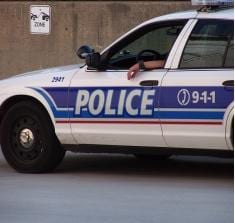In the second week of March, Ottawa police arrested 11 people in a prostitution sweep. The sweep was conducted over a two-day period in the Carlington area.
Four females were arrested and charged with prostitution, mischief and breach of condition. Seven males were also arrested, three were charged with prostitution and mischief offences while the remaining four were released on the pre-charge diversion John School program. A total of 14 criminal charges were laid.
The sweep marks the third one conducted by Ottawa police in 2010 and the first one this year for the west division.
“The downtown core has more frequents sweeps,” says Sgt. Atallah Sadaka of the West Division.
He says last week’s sweep in the west district was in response to community complaints and from police walking the beat.
“It is information that comes from the community right down to the community policing level and it is information that’s obtained through officers, we call it intelligence information,” says Sadaka.
The sweep follows the pattern the Ottawa police have followed for the past two years. Acting upon community feedback and their own intelligence, they have routinely conducted two-day blitzes — roughly once a month — in downtown areas.
If the last three months are an example, Ottawa police intend to continue their crack down on prostitution, despite misgivings that the campaign against sex workers forces women to work further away from areas that are well lit and relatively safe.
Most of the prostitutes are arrested, not on prostitution-related charges, but on breach of condition charges. The charges effectively red zone the women out of areas they normally work and live in — and that is what concerns people like Bryonie Baxter, executive director and regional advocate of the Elizabeth Fry Society.
“Red zoning means they are given restrictions about not being able to return there,” Baxter told Xtra in an interview last year. “If you are in the sex and skin trade you return to areas where you are known, for security, if you are going to be working you want to be working where people know you.”
As more women come under the threat of breach of conditions for working in areas where they are safe, they are forced to work further away in areas where their safety is undermined — a concept that is not in line with police actions.
“I wouldn’t say that this is driving them into areas that are more dangerous,” says Sadaka. “I think the very nature of that type of behaviour is dangerous in itself, whether it’s a well lit area or whether it’s a dark area. There’s people that are getting into vehicles with complete strangers so that no matter where it happens I think it’s a high risk activity.”
The last prostitution sweep of 2009 was in November when 34 people were arrested in the Carlington, Centretown and Vanier areas.
The first sweep of 2010 occurred in January when 12 people were arrested in the Centertown and Vanier areas. Two people were released on the pre-charge diversion John School program while the remaining 10 were arrested on breach of conditions and mischief charges. Two other johns were given a community safety letter.
The community safety letter, introduced in 2007 by the Hintonburg Community Association and the Ottawa Police Service, is sent to drivers stopped near sex workers. It says the sex trade has a negative impact on communities.
In February police conducted two consecutive prostitution sweeps in Lowertown and Vanier arresting eight female prostitutes and two johns. Both men qualified for the john school — all eight of the women were arrested on mischief and breach of conditions.

 Why you can trust Xtra
Why you can trust Xtra


